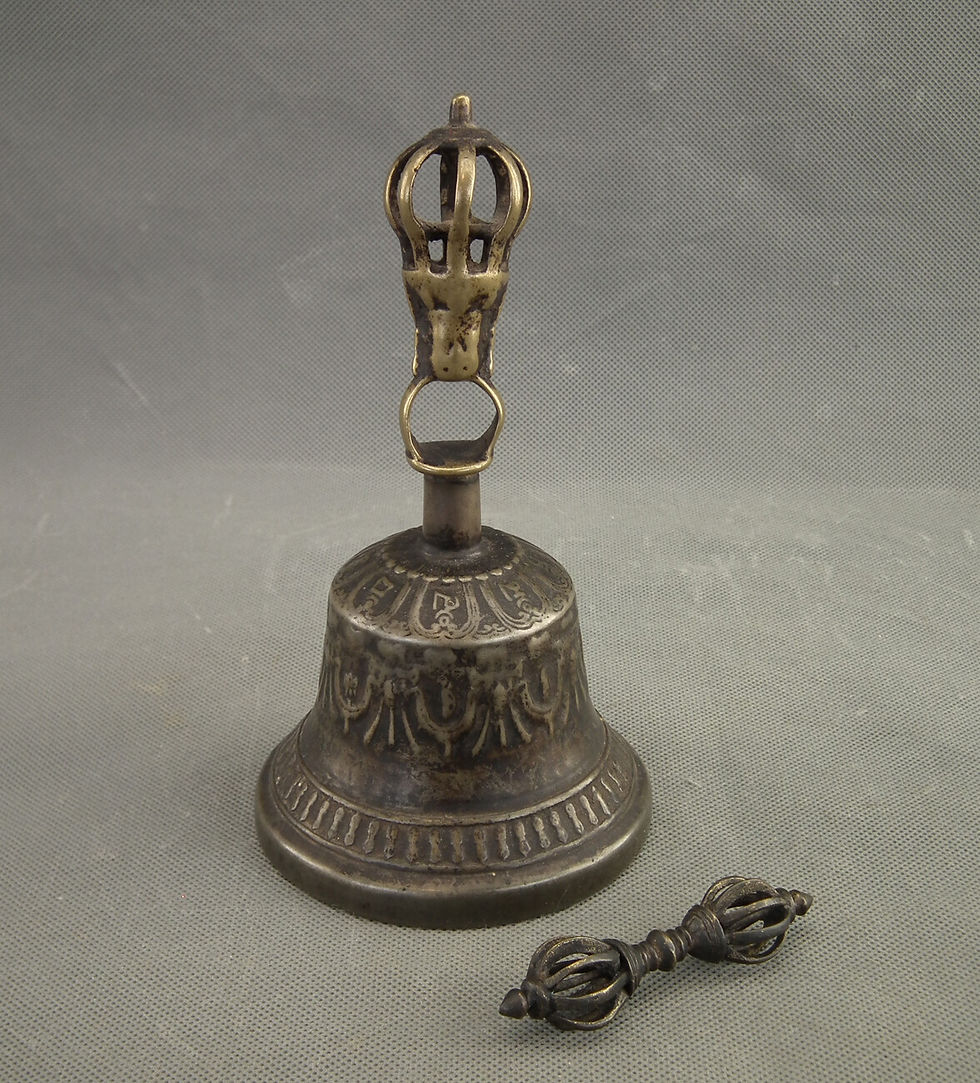Antique Sino Tibetan Buddhist Bell Ghanta and Vajra Ming Dynasty 16th -17th Cent
Antique copper alloy Sino-Tibetan Buddhist ritual bell Ghanta and Vajra, 16th -17th century, Ming Dynasty, Tibet.
The ghanta is cast in two parts: a silvery metal bell decorated with a band of vajra symbols and the shoulder adorned with sacred syllables in a written lantsa script. The bronze handle is formed by the Bodhisattva's head, crowned by nine-pronged dorje below the thumb ring.
The clapper's interior is decorated with a six petals lotus flower head.
The accompanying nine-pronged Vajra is from a later period time.
CONDITION: It shows its age and intensive ritual use; handle bent and heavily worn, bell ornamentations well-rubbed, old patina overall, iron clapper possibly later replacement.
PROVENANCE: The ritual bell ( ghanta, dril bu-Tibetan) is used in the Buddhist context to symbolizes supreme knowledge and, when used in combination with a thunderbolt scepter (Vajra, Tib. dorje- diamond/thunderbolt), it symbolizes compassion, represents the highest state of consciousness, the prerequisite for salvation.
MEASUREMENTS:
Height: 18cm (7.1 inches).
The diameter of the bell rim: 9.5 cm (3.7 inches).
Weight: 428 grams (0.9 pound).
The overall length of the Vaira: 8.4 cm (3.3 inches).
Weight: 35 grams (0.08 pound).


















